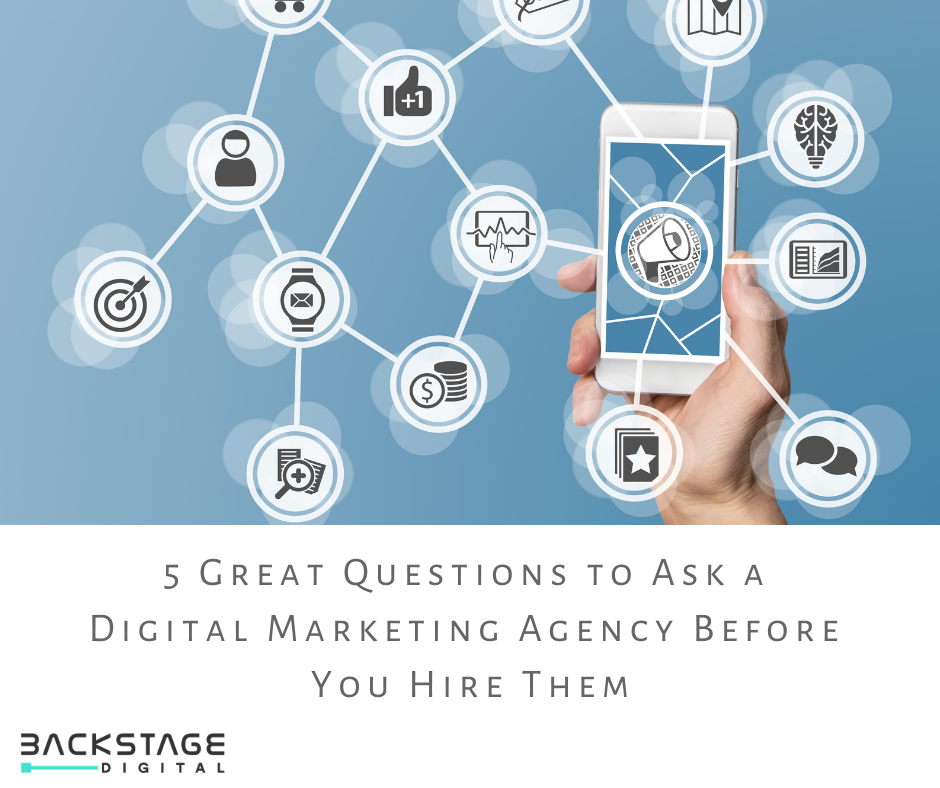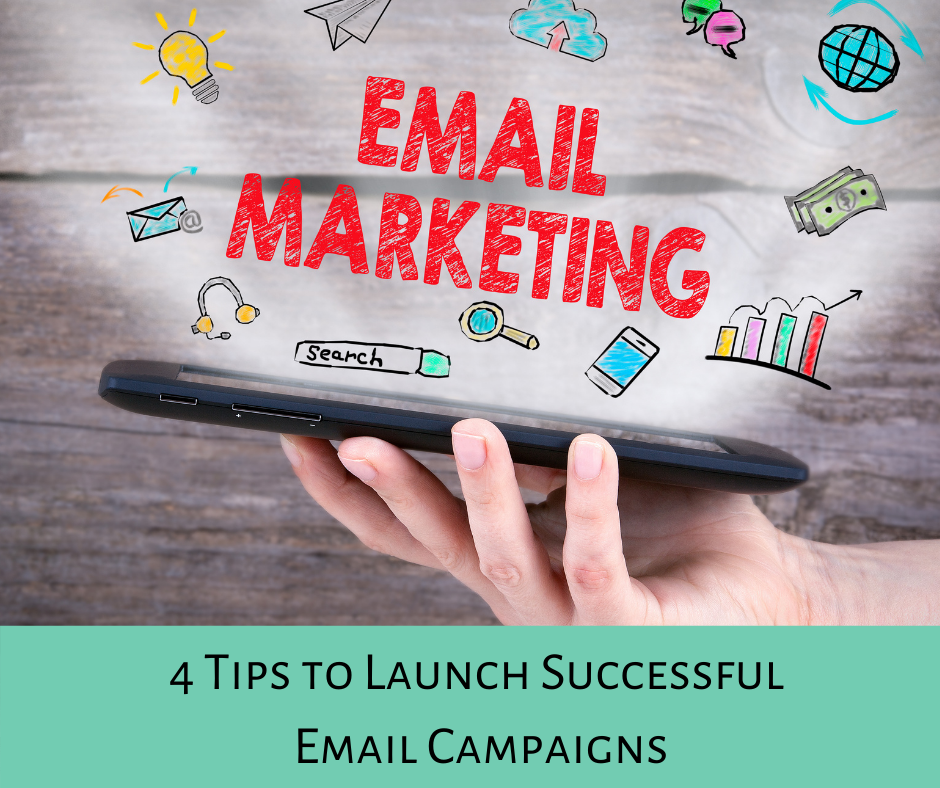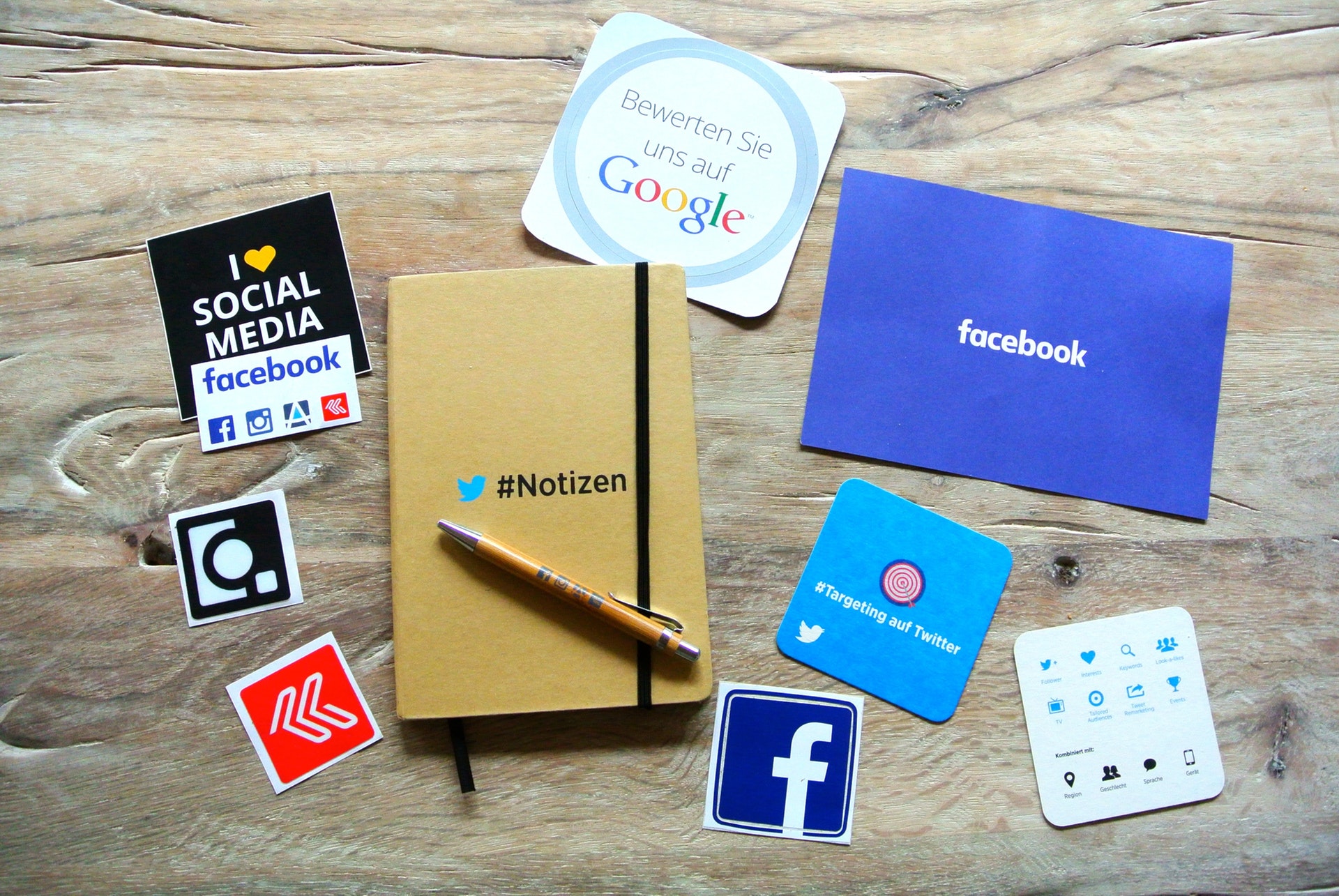Email Marketing: 4 Tips to Launch Successful Email Campaigns
Did you know that 49% of consumers would like to receive promotional email marketing from their favorite brands? (Oberlo.com)
Sometimes you might wonder, “what do I have to say to my list of contact?” There are so many things that are email worthy when it comes to your business like:
- Product / Services Updates
- Sales, Promotions or Specials
- Upcoming Events
- Educational / Helpful Content
- Internal Behind the Scenes or Happenings
Here’s Why You Should Consider Email Marketing
I know what you are thinking, great…another marketing channel I need to figure out and keep updated. But let’s look at the data.
Conversion Rates
Get this, conversion rates for emails are higher than social media, direct traffic, and search (Smartinsights.com).
Wait – go back and read that one more time.
Conversion rates for your email campaigns are higher than several of your current digital channels. Meaning, investing time, resources and energy into delivering consistent and strategic email marketing campaigns will amplify your business.
Cost Effective
Email marketing is one of the most cost effective ways to market your business. Platforms like Constant Contact and Mailchimp offer plans for SMBs that allow you to grow and won’t break the bank.
Most email providers charge based on the total number of contacts in your database, so you have the power to control your costs associated with this marketing channel.
Email Marketing Automation
You might have heard about automation and wondered if it was worth it?
It is no shocker that custom automation workflows have the highest click-through rates. (Omnisend.com)
Email automation can be as simple or complicated as your business requires. Typically for an SMB, a simple 3-step email automation campaign will benefit your business. Build out campaigns that align with your customer’s journey and where they might be in the buying process.
Pro Tips for Launching Successful Email Marketing Campaigns
Make a Plan

Don’t even open your email software without already planning out your email campaign. Put your pen to paper first to plan. What are you going to say and who are you going to say it to? We recommend drafting email content in a Word Doc with the goals listed at the top for easy reference during your planning.
Take this a step further and align your email marketing plan with your other marketing channels to keep messaging consistent across social media, website, email and any direct marketing you are executing.
Pro Tip: Brainstorm a list of topics and keep it running for your email marketing campaigns.
Automate Your Email Marketing Campaigns
If a prospect from your email database opens your first email, have emails in place that send out within a few days to continue the conversation surrounding that topic.
This not only builds efficiencies with your email campaigns, it allows consumers to flow through your marketing channel from awareness to conversion with the help of educational, promotional and sales content throughout your email campaigns.
Pro Tip: Several email software platforms have this capability in place for 2 or 3-step email automation campaigns.
Video, Video, Video
Adding videos to your email can increase click rates by 300%. (Oberlo.com)
Keep video first when putting together your email marketing campaigns. In today’s digital landscape, we expect video content from the brands we purchase from. Videos can be a simple explainer video or some shots of your product “In action” – it depends on the overall message of your email campaign.
Focus your target persona at the forefront of your video strategy when combining video and email marketing for the ultimate win!
Keep it Consistent
Can you believe that your customers want to hear from you? Keeping things consistent is essential to keeping your brand at the top of their minds.
49% of consumers said they would like to receive promotional emails from their favorite brands on a weekly basis. (Oberlo)
When we talk about consistency with a brand, we always recommend starting small and building from there. Starting with a monthly email campaign, then increasing to a bi-weekly might be the perfect fit for your audience.
Whatever you do, keep things consistent vs the “every-now-and-then” approach.
Email marketing can seem overwhelming because there are several factors to executing a successful email campaign. These are just a few short tips to ensure you launch a successful email campaign for your brand!
















